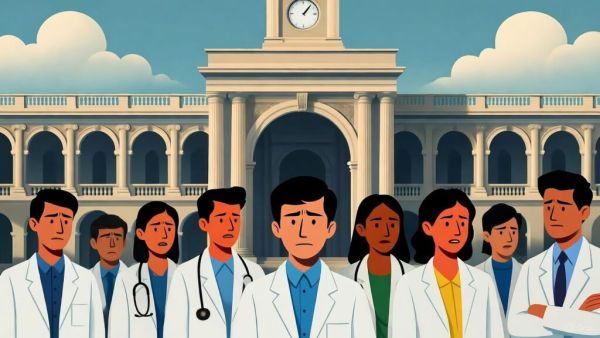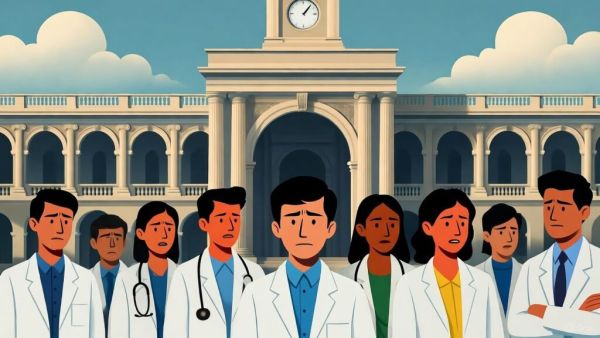

Medical Colleges: The Federation of All India Medical Associations (FAIMA) has released the results of the Review Medical System Survey conducted across India. The survey was conducted across various medical colleges in the country and involved more than 2,000 students, teachers and professors from 28 states and union territories.
The survey revealed that many newly opened medical institutions have serious shortcomings and deficiencies in infrastructure, availability of teachers and quality of training. More than 600 doctors from Maharashtra including Medical, Mayo, AIIMS participated in the survey. Teachers and students from premier institutes like AIIMS, PGI, JIPMER participated in large numbers.
Notably, doctors from Andaman and Nicobar Islands also participated in the survey. Of all participants, 90.4 per cent were from government institutions and 7.8 per cent were from private institutions, providing a balanced and representative view of the medical education system across the country. 69.2 percent students said that the facilities of laboratories and equipment were satisfactory while the availability of teachers was found to be only 68.8 percent.
Only 44.1 percent colleges have active skill laboratories. Only half of the participants received Vidya salary on time and 29.5 per cent of the students were found to have fixed working hours. 73.9 percent students said that there is heavy burden of clerical work. 55.2 per cent cited shortage of staff while 40.8 per cent of students said the workplace environment was toxic. And 89.4 percent of the participants agreed that poor infrastructure directly affects the quality of education.
Laboratories – 44.1 questions present in colleges only
work hours – 29.5 questions are decided by students only
Clerical work – 73.9 questions, heavy burden on students
Shortage of personnel – Remained up to 55.2 percent
In comparison to government institutions, the regularity of education and the condition of teachers in private colleges were found to be relatively better. 70.4 per cent students expressed confidence in acquiring the skills but 57.4 per cent students said they were ready for independent medical practice. This shows that there is a huge gap between theoretical and practical training.
Based on these findings, the organization has sought immediate intervention and reforms from the Ministry of Health and Family Welfare and the National Medical Commission. To maintain the quality of medical education, good infrastructure, adequate staff, reduction in clerical burden, timely payment of scholarship salary and establishment of mandatory skill laboratories in every medical college are essential.
The organization has decided to formally submit the report to the concerned authorities. The organization believes that the growing medical education system in India is the need of the hour to produce world class quality, skilled and confident doctors. After the survey, the organization took the initiative to meet officials of the National Medical Commission but its suggestions were ignored.
This survey was conducted under the guidance of the organization’s patron Dr. Rohan Krishnan, Dr. Sandeep Dagar, President Dr. Manish Jangra and President Dr. Akshay Dongardiv. The main organizer of this survey was Dr. Sajal Bansal. Co-Chairman Dr. Jaideep Choudhary, Dr. Srinath, Dr. Sushil Shinde as well as office bearers of all the Resident Doctor Associations across the country contributed significantly to the survey.